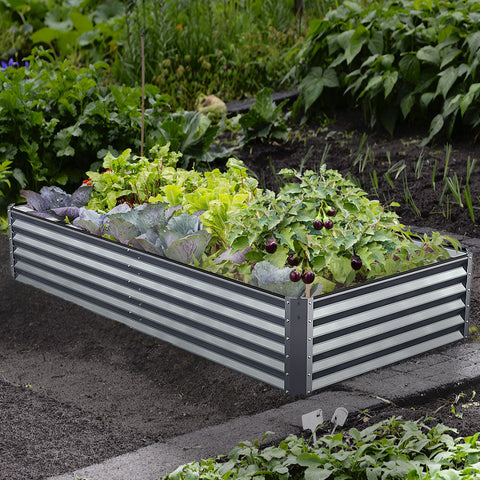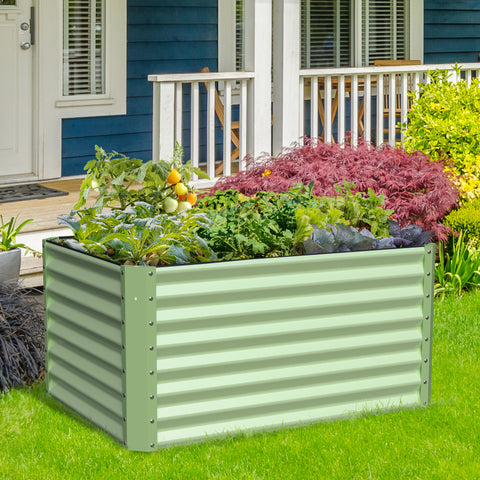With everything going on in the world, gardening has become a hobby of choice for many people who are forced to stay at home due to social distancing restrictions. Research on urban gardening has shown that people who grow their own gardens develop healthier habits. They are less stressed, eat fresh produce and exercise regularly.The following content also has some reference value for raised garden beds.
As humans, when we want to heal, we usually turn to the natural world. Being outside can help us manage our complex feelings and get out of our own head space - which is amazing by its very nature. To further tap into the power of nature, here are five tips to make your garden more magical:
First plan layout
Before doing anything to change your garden, it is important to clean it first. Remove overgrown plants, treat uneven ground, and identify any pests to avoid more work. You don't want a wild and messy garden; If you're going to carry out any successful project, you need a blank canvas.
Once you've prepared the space and figured out any limitations, start designing your garden. You can set up a small table, a door, an arch, or even a corner for meditation. You can also create sections in your garden by making paths. The channels can be made from stones of the same size, or you can have fun and use different shapes and sizes in more creative ways.

Try Moon Gardening
Moon phase gardening has been a concept since humans began growing food. This ancient growth theory suggests that water underground and in plants is affected by the moon's gravity, just like ocean tides. This means that when the tides are highest, the seeds also absorb more water.
To practice moon gardening, you need to rely on a calendar to observe the best dates for planting, planting, or weeding. As a general rule, all ground crops should be planted when the moon is in full bloom, and root crops grow best when the moon is waning. During the last quarter of the lunar cycle, gardeners should focus on improving soil quality with compost, mulch, and fertilizer tea. Also, do not plant before the new moon.
Choose "magic" plants
For centuries, people have believed that certain plants have special properties. While it's hard to imagine a single branch bringing you good luck, warding off evil spirits, or setting you on the path to true love, many herbs and plants do promote good health. You may want to choose these "magic" plants for your garden. Fortunately, there are many resources on this topic.
You can go online and browse websites, or better yet, read a book about miracle herbs. The books feature hundreds of herbs and plants from around the world and are comprehensive in their illustrations, common names and uses. Some powerful plants include rosemary, calendula, mint, basil, lavender, chamomile, sage, and lilacs. Adding these plants and flowers can not only add scent and texture to your garden, but also attract pollinators such as bees.
Handmade furniture or practical outdoor items
You don't need to buy the latest garden furniture to make your space look amazing. Upfitting old furniture is a fun, creative, and sustainable way to decorate your garden. You can look in your attic or basement and see if there's anything you can use; With sandpaper and paint, you can transform an old bed into a garden bench.
If you really want to challenge yourself, why not build something unique in your garden? For example, a DIY outdoor pizza oven allows you to turn your space into a social area. While you may need a permit and a few hundred dollars to create one, it's incredible to use something you built specifically for your backyard.

Make it your own
For a truly whimsical garden, add a personal touch here and there. You can hang small colored lights or lamps at night to illuminate the space. You can also place crystals and miniature statues on the ground. Whichever you choose, try to surprise your visitors by partially hiding some objects in a garden bed or at a bend in a path.
Finally, it is important to maintain your garden. As romantic as it sounds, let everything grow wild and you'll need to add mulch or fertilizer to keep the plants growing. Pruning overgrown shrubs in late winter or early spring can also help you get rid of any diseased, infected, or dead stems and branches that may be affecting other plants. Without pruning, shrubs can make your garden look more worn out. With extra careful design and care for your garden, you will feel its magical effect on you in no time!









